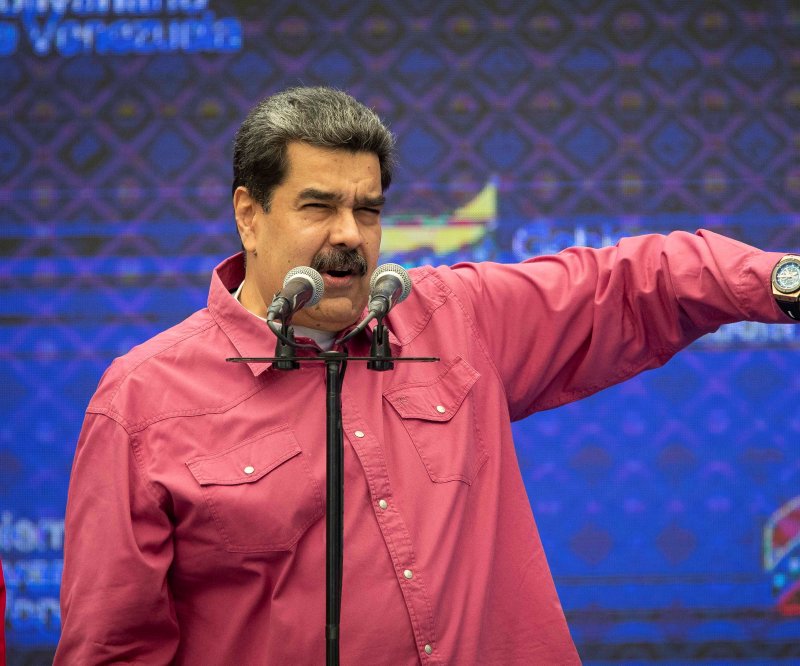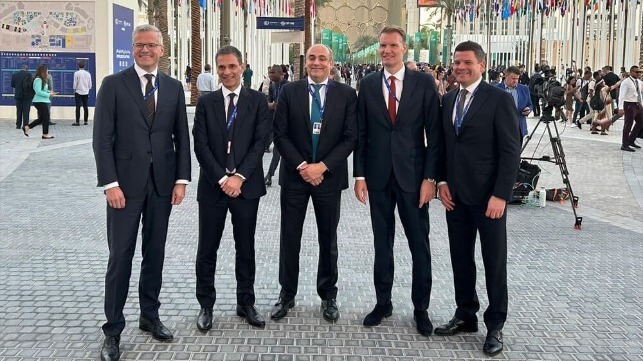Caracas (AFP) – Venezuela said Friday it would press ahead with a weekend referendum over the fate of an oil-rich region claimed by itself and Guyana even as the UN's top court urged restraint in the worsening row.
Issued on: 01/12/2023 -

Meanwhile regional giant Brazil, with which both neighbors share a border, said it had "intensified" its military presence amid "concern" in Brasilia over the standoff.
In The Hague, the International Court of Justice (ICJ) ordered Venezuela to "refrain from taking any action which would modify the situation that currently prevails" in the Essequibo region, which Guyana has administered for over 100 years.
The judges decided in an urgent bid by Georgetown to stop Sunday's vote, but did not mention the plebiscite in their ruling.
Venezuela claimed victory, with President Nicolas Maduro saying in Caracas that Guyana and ExxonMobil, which recently found oil in Essequibo, had been dealt "a historic beating."
"On Sunday we will have a referendum," he added, waving the court ruling in front of thousands of people at the close of the campaign urging Venezuelans to vote "yes" to all five questions posed in the referendum.
There was no counter-campaign.
Guyana's President Irfaan Ali also welcomed the ruling, which he interpreted as meaning that "Venezuela is prohibited from annexing or trespassing upon Guyanese territory."
He said in a statement Guyana was committed to pursuing a peaceful, legal resolution to the dispute, adding he was confident that in its final judgment in the matter, the ICJ "will conclude that the Essequibo is legally and rightfully Guyanese territory."
'Guyana Esequiba State'
Venezuela has for decades laid claim to Essequibo, which makes up more than two-thirds of the territory of Guyana and is home to 125,000 of its 800,000 citizens.
Litigation is pending before the ICJ over where the borders should lie.
Guyana, a former British and Dutch colony, insists the borders were determined by an arbitration panel in 1899.
But Venezuela claims the Essequibo River to the region's east forms a natural frontier and had historically been recognized as such.
The dispute has intensified since ExxonMobil discovered oil in Essequibo in 2015.
Caracas called the referendum after Georgetown started auctioning off oil blocks in Essequibo in August.
Sunday's referendum will ask citizens whether or not Venezuela should reject the 1899 arbitration decision as well as the ICJ's jurisdiction in the matter.
They will also be asked whether or not Venezuelan citizenship should be granted to the people -- currently Guyanese -- of a new "Guyana Esequiba State."
Guyana has argued the referendum poses an "existential" threat to the country as it could pave the way for Venezuela to "unilaterally and illegally" seize the region.
The ICJ said in its ruling there was a "serious risk of Venezuela acquiring and exercising control and administration of the territory in dispute in the present case."
The Caribbean Community (Caricom) said in a statement Friday the ICJ order prohibited Venezuela from taking any measure "that would change the status quo in the territory, regardless of the outcome of the Venezuelan referendum on Sunday."
It added: "Venezuela cannot by a referendum, or otherwise, violate international law and disregard the Order of the world’s highest Court."
'Concern'
Tiny Guyana has the world's biggest reserves of crude per capita, while economically ailing Venezuela, facing crippling international sanctions, sits on the largest proven reserves overall.
Just last month, Guyana announced a "significant" new oil discovery in Essequibo, adding to estimated reserves of at least 10 billion barrels -- more than Kuwait or the United Arab Emirates.
Paul Reichler, a lawyer representing Guyana, told the court during hearings in November that Venezuelan "military preparations were already underway" to enforce the referendum result.
In her submission to the court, Vice President Delcy Rodriguez insisted a recent military mobilization was to prepare for the referendum.
The ICJ rules on disputes between states but while its decisions are legally binding, it has no power to enforce them.
Brazilian defense ministry said in a statement Friday that "defense operations have been intensified in the country's northern border region, leading to a larger military presence."
Brazil's top diplomat for Latin American affairs, Gisela Maria Figueiredo, said Thursday President Luiz Inacio Lula da Silva's administration was following the situation with "concern."
In the United States, which has close relations with Guyana, National Security Council spokesman John Kirby appealed for a peaceful resolution to the dispute.
"The 1899 arbitral award that determined the land boundary between Guyana and Venezuela should be respected unless the parties reach a new agreement or the International Court of Justice decides otherwise," he said.
burs-mlr/acb/caw
© 2023 AFP

Venezuelan President Nicolas Maduro has pushed for a referendum Sunday asking voters to covert 62,000 square miles of land that makes up the Essequibo, which also is claimed by Guyana, to a new state.
Dec. 1 (UPI) -- Tensions are running high in Venezuela and Guyana ahead of a referendum this weekend as Venezuelans are voting to make a disputed, oil-rich territory a state.
Venezuelan President Nicolas Maduro has pushed for a referendum Sunday asking voters to covert 62,000 square miles of land that makes up the Essequibo, which also is claimed by Guyana, to a new state.
The referendum has been condemned in Guyana, while some suggested that it would lead to war between the two countries.
"People in the border region are very concerned," Guyana's Foreign Minister Hugh Todd said. "Maduro is a despotic leader, and despotic leaders are very hard to predict."
Related
Oil prices rise again as Mideast conflict adds risk premium amid tight supply
U.S. eases sanctions on Venezuela after election deal reached with oppositio
Maduro has managed to hold onto to power after a disputed election in 2018 that led to the West backing away from him, along with heavy sanctions when he rejected new elections and ignored calls to leave office. He is up for re-election next year.
The International Court of Justice had been reviewing a request by Guyana dating to 2018 in which the country asked the court to validate an 1899 decision that gave it control over Essequibo.
Guyana has asked the court to step in and stop the referendum, calling it an "existential threat to the country. The Organization of American States has called for a pause in the referendum vote.
Guyana Vice President Bharrat Jagdeo blamed Maduro focusing the referendum to ignore local politics, while Venezuelan Vice President Delcy Rodriguez called Jagdeo a "plant" for the oil giant ExxonMobil, and that its claim over Essequibo was legal.











